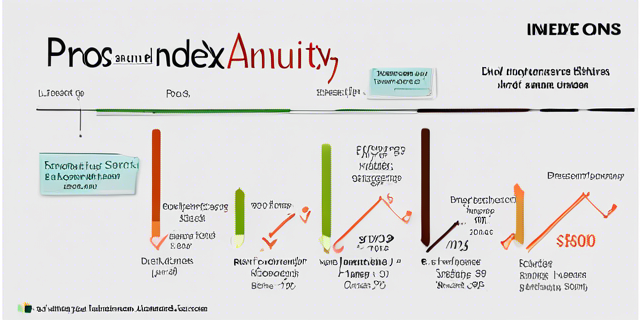The Best Book for Beginner Investors

The Best Book for Beginner Investors
Learning how to effectively invest your money can pave the way towards financial freedom. With so many options for beginners, finding the right educational springboard can be tricky. In this comprehensive guide, we outline the ultimate book to start mastering investing from scratch.
Why You Need a Beginner Investing Book
Investing may seem intimidating initially. Terminology like stocks, bonds, mutual funds, and rates of return can quickly confuse novice investors. This leaves many hesitant to engage with financial markets. However, gaining even elementary knowledge opens doors to grow your money like never before.
Breaking Down Beginner Barriers
A proper investing primer structured for newcomers helps establish critical foundations. This includes:
- Demystifying complex concepts – Clear explanations help simplify intricate details into digestible components.
- Providing methodology – Step-by-step walkthroughs detail practical approaches to apply learned principles.
- Building confidence – Increased understanding empowers beginners to feel capable of executing strategies independently.
With barriers removed through education, investing becomes far less daunting. Beginners gain courage to start leveraging financial instruments to accumulate wealth. The right introductory book provides the spark for this enlightening transformation.
Why Books Trump Other Formats
Many self-education options exist thanks to YouTube, podcasts, online courses and more. However, thorough investing guidebooks still maintain unique advantages:
- Comprehensive content – Books allow far more extensive information than brief videos or articles.
- Engaging learning – Well-written prose more actively captivates readers compared to passive watching/listening.
- Retaining principles – Referring back to salient points in physical or digital books proves easier for subsequent review.
- Credible authority – Published authors often possess deeper mastery than amateur content creators.
There remains no substitute for the meticulous framework of investing fundamentals and best practices detailed across chapters in a seminal book.
Establishing a Core Investing Knowledge Baseline

The Best Book for Beginner Investors
Financial instruments like securities and managed funds utilize varied, interlinking concepts. Strategically structured books build investor fluency block-by-block.
Key Foundational Areas
Beginners broadly benefit from books granting exposure across:
- Financial goal setting – Quantifying objectives based on risk, timeline, etc.
- Wealth accumulation vehicles – Introducing stocks, bonds, mutual funds, etc.
- Asset valuation methodologies – Techniques for determining fair pricing
- Performance benchmarking – Measuring returns relative to indexes
- Portfolio diversification – Allocating across assets and geographies
- Tax efficiencies – Strategies to minimize IRS liability
Grasping these core pillars empowers investors to then explore specific instruments like the stock market in more depth. Establish wide foundations before pursuing specializations.
Balancing Theory With Practicality

The Best Book for Beginner Investors
Simply memorizing financial concepts fails to directly enable active investing. The best educational books also bridge theory with tangible examples like:
- Math illustrations – Percentages, ratios, compound interest formula applications, etc.
- Scenario modeling – Realistic simulations of strategies across investor archetype situations
- Decision frameworks – Step-by-step analysis guidance with case study examples
Tying together abstract ideas with numerical grounding and tactical direction gives beginners the confidence to strategize independently.
Evaluating the Ideal Beginner Investor Book
With countless investing guides in circulation, determining the perfectly suited option for your needs takes consideration across several factors:
Recency of Publication
Financial products, regulations, and technological capabilities evolve rapidly. As such, invest in education content featuring latest available data and strategies.
Target books published no more than 5 years ago to ensure contemporary relevancy. Outdated materials risk teaching techniques no longer applicable or omitting better approaches now available.
Author Expertise
Seeking counsel from veteran market participants with proven track records improves insight credibility. Prioritize authors flaunting professional investing, financial analysis, portfolio management, or similar industry experience.
Ideally, choose an author with 10+ years navigating markets successfully firsthand. Such mastery reflects through informed perspectives beginners won’t find elsewhere.
Scope of Content
Look for books spanning investing considerations universally rather than just narrow categories like stocks or options. Establish an overarching knowledgebase before pursuing specialties.
Comprehensive guides detail critical breadth across asset classes, strategic planning, risk management, and more. This fuels informed instrument selection matching specific investing goals down the road.
Reader Comprehension
Even expert authors sometimes miss the mark structuring explanations suited for beginners. Seek out books deliberately designed to engage novice investors through:
- Accessible writing style – Clear, concise prose avoiding unnecessarily complex verbiage
- Relatable explanations – Tie concepts to tangible examples reflecting real world applications
- Methodical lesson pacing – Steadily ramp up intricacy across modular chapters
** Reader-centric composition** proves the author prioritizes pedagogy over showcasing intellect. Digestibility for diverse learning styles separates great educational guides from merely informative ones.
The Best Book for Beginner Investors – Recommendation

The Best Book for Beginner Investors
Analyzing the contemporary scene of investing literature against key factors of authority, completeness, and instructional efficacy – one book stands atop all others:
The Little Book of Common Sense Investing by John C. Bogle
About the Author – John C. Bogle
As founder of financial investment firm The Vanguard Group, John C. Bogle possesses unparalleled industry pedigree. He pioneered low-cost index funds making diversified investing affordable for small retail participants.
Few authors boast comparable practical experience navigating markets across decades. Bogle conveys hard-earned wisdom through a grandfatherly lens beginners easily relate to.
Book Overview & Key Highlights
At just 218 pages, Bogle’s concise volume packs an immense breadth of foundational investing education. He focuses on the key principle of capturing market returns across assets efficiently via diversification. Critical highlights include:
Simplified Terminology
- Demystifies vocabulary like assets, risk, rates of return, cost basis
- Clarifies confusing concepts through relatable explanations
Strategic Frameworks
- Details portfolio allocation methodology balancing cost, risk, diversity
- Explains techniques evaluating performance objectively
Methodical Fund Selection
- Profiles optimal low-cost fund types like index and mutual options
- Outlines fund analysis based on structures, fees, asset compositions
Presented through witty storytelling, Bogle turns drab details into delightful illumination. Readers gain holistic financial comprehension applied through tactical share investing blueprints.
Implementing Education into Action
Armed with elemental investing awareness, putting that knowledge into practice requires leaning into Bogle’s guidance:
Embrace Passive Indexing Approach
The book’s core lesson promotes passive portfolio management via broad index funds instead of individual security picking. This style supports wealth building through minimized cost and volatility.
Prioritize Fund Fees
Bogle hammers avoiding expense over everything. Let fees guide investment selection, with <0.20% as excellent target range. High annual expenses severely hinder compound growth potential long-term.
Construct Diverse Low-Turnover Portfolio
With indexes identified using aforementioned tactics, allocate percentage weighting towards US & international stocks blended with US & foreign bonds to capture global market returns. Rebalance annually or less frequently.
Adhering to these prevailing principles from Bogle’s treatise fosters steady portfolio prosperity over flashy alternatives attempting to “beat the market”. Time and tax efficiencies confer massive advantages.
Supplementing Investing Skill Development
While Bogle’s book gifts foundational fluency, honing executional skill and specialized knowledge merits ongoing self-education.
Pursue Multiple Learning Mediums
After establishing bases through Bogle, diversify input streams across videos, podcasts, online courses, etc focused on relevant instruments matching planned strategy (i.e. stocks, mutual funds).
Open a Brokerage Account
Apply developing know-how through actual investing experience. Setup a beginner-friendly brokerage account like Charles Schwab offering research tools. Experiment with paper trading before allocating capital.
Expand Personal Library
Compile a personal inventory of literary resources across investing niches like retirement planning
technical analysis, options trading, and more. Revisit materials aligning with evolving financial needs over your lifetime.
While The Little Book of Common Sense Investing fuels the foundational launchpad for fledgling investors, many miles remain on the journey towards proficiency. Use Bogle’s principles as guardrails while continuing to level up through ongoing market exposure.
Common Questions from Beginner Investors
What is the best investment for beginners?
The best initial investment for beginners are low-cost, highly diversified index mutual funds or ETFs. These provide affordable access to wide market returns requiring minimal maintenance.
Do I need a lot of money to start investing?
No, many great beginner investing platforms allow you to open accounts and start purchasing funds with no minimum or very low minimum balances between $1-$100. This remains true for both retirement and taxable investment accounts.
How much should a beginner invest?
Generally aim to invest 10%-15% of your overall gross income if possible. For example, invest $100 per month if you earn $1,000 monthly. Ratchet contributions as income rises. Consistent saving builds long-run wealth.
Where should a teenager invest money?
Great investing options for teens include a custodial Roth IRA funded with earned income from part-time jobs. This headstarts tax-free retirement wealth compounding for decades before adulthood.
What percentage of my portfolio should be stocks?
As a beginner, aim for 75%-90% allocation to stocks spread globally across US and International indexes. The remaining 10%-25% fills with bond index funds for stability and income. Revisit allocations as you age.
Conclusion
Investing delivers tools for achieving financial freedom unavailable through traditional saving alone. However, realizing market returns necessitates advancing beyond beginner barriers first. The Little Book of Common Sense Investing perfectly distills complex investing methodologies into easily digestible guidance for newcomers.
Reading this book gifts foundational proficiency to start actively contributing toward your personalized investing goals. Then by leaning into Bogle’s principles in practice while continuing education elsewhere, neophytes can steadily ascend into empowered market participants securing their financial futures.









